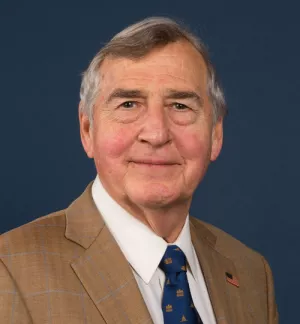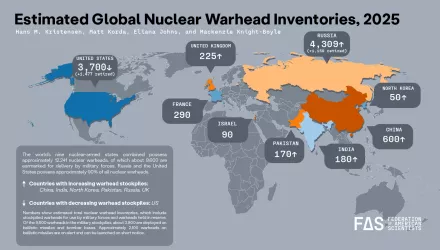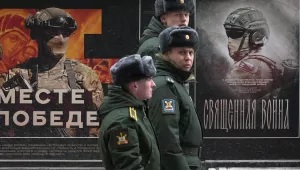The following op-ed was published in Süddeutsche Zeitung in German.
The unspoken hope of many Germans is that their country can keep its head down and thereby escape the attention of Al Qaeda and its associates. Recent attacks by Islamic jihadi terrorists within Europe show why this strategy is destined to fail.
These incidents are the tip of an iceberg of simmering resentment and growing radicalism. Europe’s fifteen million Arabs and Muslims are 4 times as likely to be unemployed as native Europeans. Many feel humiliated and alienated, and see little chance for assimilation.
Last year’s Madrid attacks revealed an explosive cocktail that mixed foreign terrorists, disaffected locals, and organized crime. Terrorists in Iraq tried to use the unspoken threat of hostage decapitation to force France, the most outspoken critic of the Iraq war, to reverse a ban on Muslim headscarves in schools. Militants have demonstrated their willingness to kill innocents, including even schoolchildren in Beslan, Russia. And in the Netherlands, modest efforts to combat extremism were answered by a stark warning left on the body of a murdered filmmaker: “I know definitely that you, Oh Europe, will go down.”
Al Qaeda has not launched a successful, large-scale attack in Europe since March 2004. Yet as CIA director George Tenet has noted, Al Qaeda has shown “patience, thoughtfulness, and expertise.” Osama Bin Laden is famous for sending Al Qaeda members back to the drawing board to plan more devastating assaults. When Khalid Sheikh Mohammed proposed crashing a small charter plane full of explosives into the Pentagon, Bin Laden asked, “Why use an axe when you can use a bulldozer?”
Osama Bin Laden has challenged the Al Qaeda movement to trump 9/11. The list of potential attacks that could surpass that bar is a short one. A nuclear mushroom cloud enveloping a Western capitol would be the ultimate spectacular.
The central, largely unrecognized good news is that nuclear terrorism is in fact preventable. The strategic narrows of this challenge is to prevent terrorists from acquiring a nuclear weapon or material from which a weapon could be made. As a simple fact of physics: no highly enriched uranium and plutonium, no nuclear explosion, no nuclear terrorism. It is that simple.
Russia’s 11-time-zone expanse contains more nuclear weapons and materials than any country in the world, including more than 8,000 assembled warheads and enough weapons-usable material for 80,000 more. Thirteen years on, according to U.S. Department of Energy data, not even half of Russia’s nuclear weapons and materials have been secured to acceptable standards. These present attractive targets for terrorists shopping for a bomb.
Regardless of whether a nuclear bomb explodes in Moscow, New York, or Berlin, the rest of the civilized world will be forever changed. Germany is a major player in assuring that that day never arrives. Chancellor Schroeder has clearly built a strong relationship with Putin and both leaders have begun to see the light regarding the danger that nuclear terrorism poses today. After the Beslan tragedy, Schroeder and Putin issued a joint statement:
“We are aware of our duty to do all we can to protect our people from such a disaster as terrorism,” the leaders agreed. “We will…coordinate and increase our efforts on preventing terrorists from obtaining or developing nuclear, chemical, radiological or biological weapons and means for delivering them.”
But Germany has an even larger leadership role to play in combating this threat. As a major technologically advanced economic power, it has voluntarily rejected nuclear weapons. A German initiative would therefore have special credibility to engage Putin and Bush in developing a global strategy to prevent nuclear terrorism. Such a strategy could be organized under a Doctrine of Three No’s: no loose nukes, no new nascent nukes and no new nuclear-weapons states.
The first requires securing all nuclear weapons and weapons-usable material, on the fastest possible timetable, to a new “gold standard.” The United States and Russia must jointly develop a standard, act at once to secure their own materials and persuade other states' leaders to follow suit.
“No new nascent nukes” means no new national capabilities to enrich uranium or reprocess plutonium. The crucial challenge to this principle today is Iran. Although the efforts of the EU-3 have produced some breathing room, preventing Iranian completion of its nuclear infrastructure will require a combination of tangible benefits and credible threats. Germany can present itself to Iran as an example of a country with international stature and security despite having foresworn a nuclear program.
“No new nuclear-weapons states” draws a line under the current eight nuclear powers and says unambiguously: “No more.” The immediate test of this principle is North Korea. To prevent the world’s most promiscuous supplier of missiles from becoming a Nukes “R” Us for terrorists, a “no new nuclear-weapons states” strategy must engage North Korea directly and communicate firm red lines.
At the Review Conference of the Non-Proliferation Treaty currently underway in New York, Joschka Fischer acknowledged, “One does not want to imagine how devastating the consequences would be if terrorist groups were to get hold of nuclear weapons.” But Germans too must get their mind around the threat, because terrorists may one day decide that Frankfurt represents the economic heart of the “hated enemy.” Lest Frankfurt end up like Hiroshima, or Berlin like Nagasaki, all Germans must hope that Shroeder, Bush, and Putin rise to the challenge of preventing this ultimate catastrophe.
Allison, Graham. “Der Atomterror Trifft auch die Deutschen (A German Role in Preventing Nuclear Terrorism).” S?ddeutsche Zeitung, May 25, 2005




